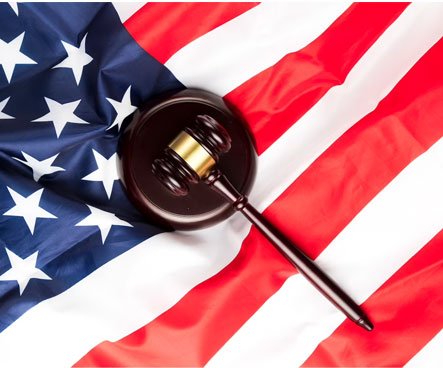Atlanta Campaign Finance Fraud Attorney

Atlanta Campaign Finance Fraud
If you’re running for government office or working for somebody who is, it’s important to understand the laws regarding campaign finances and fundraising. However, federal election and campaign finance laws can be convoluted and confusing. If you have been accused of committing campaign finance fraud, contact one of our Atlanta campaign finance fraud lawyers as soon as possible.
At The Law Office of Lawrence J. Zimmerman, our professional legal team has extensive experience handling cases regarding campaign finance law and alleged fraud. We’ve helped numerous clients who were accused of fraud, under investigation by the government, and who unknowingly committed various forms of fraudulent crimes. You can trust our team to work diligently to serve your interests.
What Is Campaign Finance Fraud in Georgia?
Federal laws regarding campaign financing pose strict regulations on political candidates and their action committees when fundraising, as well as towards their marketing activities. This is an attempt to reduce and prevent campaign finance fraud as a whole. Political candidates and organizers who are accused of campaign finance violations are vulnerable to civil penalties and potential criminal charges, accompanied by other punishments if they are found guilty.
Campaign finance fraud is a federal offense defined as intentionally creating and submitting false campaign finance reports to the Federal Election Commission. Detailed in the Federal Election Campaign Act, the federal election statute legally prohibits conduct involving the knowledgeable and willful acceptance of contributions in excess of limits.
According to campaign finance statute 52 USC § 30116, campaign contributions for an individual candidate are limited to $2,000 per person when contributed within one year. Contributions to a political party can reach up to $25,000 for each individual opting to contribute during the course of one year.
Under the election act mandate, 52 USC § 30114, it is prohibited for political candidates to spend acquired contribution funds on anything that is not a campaign-related expense. This statute also asserts that it is illegal for a candidate to spend such funds on any commitment or obligation that would exist regardless of their election campaign or their duties as a federal holder of office.
How Is Someone Accused of Campaign Finance Fraud?
The Federal Election Commission (FEC) is the agency responsible for investigating cases of suspected fraudulent campaign financing. These investigations may arise from:
- An audit from routine monitoring by the election commission.
- A referral from another government agency to the FEC.
- Sworn complaints from any individual alleging an instance of campaign finance fraud
- Self-admission by any person or group that believes they may have violated federal election law.
Crimes That Coincide With Alleged Campaign Fraud
Filing a fraudulent campaign disclosure form may also be charged with the more general federal statute of 18 USC § 1001, which legally prohibits preparing and submitting any material false statements. In the event two or more individuals conspire to infringe the federal election statute, an additional criminal charge may be applied: the general conspiracy statute, 18 USC § 371.
Another approach the government plaintiff or prosecutor can take if the alleged crime was a violation of state campaign disclosure laws involving federal funds or grants is to imply the presence of money laundering.
Under Title 18 USC § 1957, it is unlawful to spend more than $10,000 within transactions where the source of funds can’t be determined from the face of the monetary transactions. Thus, it is also possible to implicate the illegal activity of money laundering along with charges of campaign fraud and general conspiracy.
When a supposed campaign finance violation in Atlanta is criminally prosecuted, in addition to potentially facing concurrent charges of general conspiracy or money laundering, defendants will also most likely be charged with mail fraud and wire fraud. If the use of political campaign contributions for personal, non-campaign-related purposes was alleged, a defendant could also result in charges of tax evasion.
FAQs About Atlanta, GA Campaign Finance Fraud Law
What Is a Violation of Campaign Finance Laws?
A violation of campaign finance laws is any behavior or act that infringes the regulations outlined within the Federal Election Campaign Act. This federal act legally prohibits political candidates, along with their committees or organizers, from creating and submitting false financial campaign reports to the Federal Election Commission. It also limits how much a political candidate or party can accept each year.
What Criminal Charges Can Come With Campaign Fraud?
Depending on the specific circumstances of your situation, you may be charged with campaign finance fraud in addition to multiple federal offenses. Among these federal violations, candidates or their action committees can potentially be charged with general conspiracy, money laundering, mail fraud, wire fraud, or tax evasion. Defendants may also be charged with violating a general statute that prohibits the preparing or submission of any false disclosure forms.
Can Political Candidates Use Campaign Contributions for Personal Reasons?
No, political candidates cannot spend contributions to their campaign on improper purposes, including personal obligations or obligations. Campaign finances must only be used for campaign-related expenses, such as those that exist only as a direct result of the candidate’s election campaign or duties as a holder of federal office. This would make it illegal for a candidate to, for example, spend campaign funds on their personal wardrobe.
Who Enforces Federal Campaign Finance Rules?
The Federal Election Commission enforces all federal laws that regulate campaign finances. The commission was created in 1971 alongside the Federal Election Campaign Act, which establishes campaign financing laws and outlines who may or may not organize a political committee. This legislation also details how these committees can function and the manner of civil or criminal enforcement proceedings under the federal act.
Educated and Experienced Legal Counsel Ready to Fight on Your Behalf
The Law Office of Lawrence J. Zimmerman has decades of legal experience defending individuals accused of criminal conduct. Our legal team represents clients in proceedings concerning white collar crimes such as money laundering, insider trading, campaign finance fraud, other types of government fraud, and more. Reach out to us today to speak with a criminal defense attorney about your case.
Office Location
Meet With A Lawyer
Schedule A Consultation
Fields Marked With An “*” Are Required









